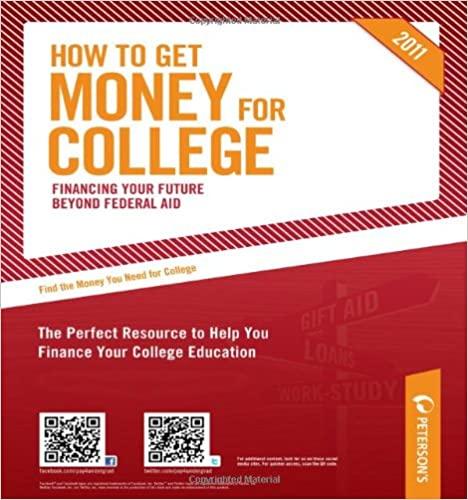Question
Tony Smith is the Chief Operating and Financial Officer of Tampa Bay Surgery Centers (TBSC), an investor-owned chain of ambulatory surgery centers with six locations
Tony Smith is the Chief Operating and Financial Officer of Tampa Bay Surgery Centers (TBSC), an investor-owned chain of ambulatory surgery centers with six locations in Central Florida. Tony is facing several financial decisions. First, he must select a bank or banks to meet the financial needs of TBSC. He has approached two local banks Truist and First Citrus Bank about the interest rates they offer on a savings account and a certificate of deposit (CD) as well as the rate charged on a term loan. Truist and First Citrus Bank offer the same interest rate on each financial product and only differ in the frequency of compounding (Exhibit 1).
| Bank | Product | Compounding | Nominal Interest Rate |
| Truist | Savings account | Weekly | 4.0% |
| Certificate of deposit | Monthly | 5.0% | |
| Term loan | Quarterly | 6.0% | |
| First Citrus | Savings account | Daily | 4.0% |
| Certificate of deposit | Annually | 5.0% | |
| Term loan | Semiannually | 6.0% |
Exhibit 1: Interest rates on three financial products
Second, a wealthy patient, was so impressed with the care she received at TBSC that she decided to make a series of donations to the facility. She will donate $85,000 a year for the first six years (t = 1 through t = 6, where t = time) and $125,000 annually for the following six years (t = 7 through t = 12). The first deposit will be made a year from today (t = 1). In addition, she has just written a check for $200,000, which Tony will invest immediately (t = 0). Tony will invest all of the donations in a CD as they become available. CDs are generally offered in maturities of six months to ten years, and interest can be handled in one of two ways: the investor (buyer) can receive periodic interest payments, or the interest can automatically be reinvested in the CD. In the latter case, the buyer receives no interest during the life of the CD but receives the accumulated interest plus the principal amount at maturity. Because the goal of this investment is to accumulate funds for future use, as opposed to generating current income, all interest earned on the CD would be reinvested.
Third, TBSC may launch substantial building renovations. In this circumstance, the Center would be forced to borrow $325,000 from a bank. Tony is considering a six-year term loan that would be repaid in equal annual installments, with the first payment due at the end of Year 1. Tony hopes to pay off the loan early at the end of Year 4.
All of these decisions involve time value analysis.
Tony will invest the donations from a wealthy investor in CDs. How much will the Center have accumulated on the day of the last donation? Use the CD interest rate of 5% that is compounded monthly.
Step by Step Solution
There are 3 Steps involved in it
Step: 1

Get Instant Access to Expert-Tailored Solutions
See step-by-step solutions with expert insights and AI powered tools for academic success
Step: 2

Step: 3

Ace Your Homework with AI
Get the answers you need in no time with our AI-driven, step-by-step assistance
Get Started


